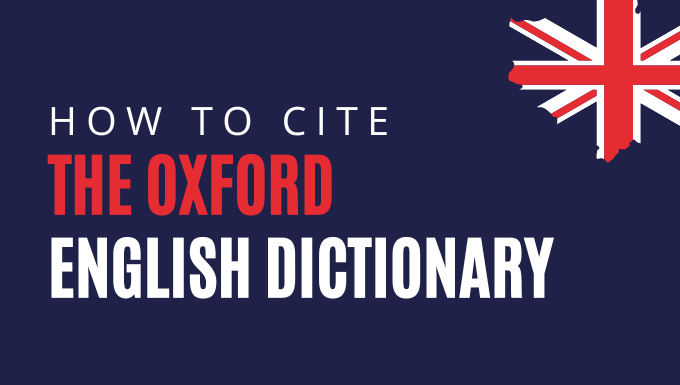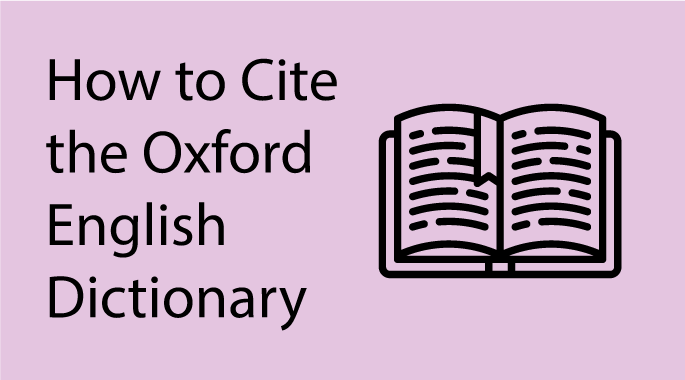In today’s digital age, accurate and proper citation of sources is crucial for maintaining the integrity of academic and professional work. When it comes to referencing one of the most authoritative sources of the English language, the Oxford English Dictionary (OED), it’s essential to follow specific guidelines to ensure your citations are accurate and consistent. In this article, we will explore how to cite the Oxford English Dictionary correctly, providing you with a step-by-step guide and valuable insights.

Table of Contents
Understanding the Oxford English Dictionary (OED)
Before delving into the intricacies of citation, it’s essential to understand what the Oxford English Dictionary is. The OED is a comprehensive and historical dictionary of the English language, documenting the development and meaning of words throughout history. It’s an invaluable resource for scholars, students, and writers seeking precise definitions, etymologies, and the evolution of word usage.
Why Accurate Citation Matters
Citing the Oxford English Dictionary properly is crucial for several reasons:
- Academic Integrity: Accurate citation demonstrates your commitment to academic integrity, acknowledging the sources that contributed to your work.
- Avoiding Plagiarism: Incorrect citation or omission of sources can lead to unintentional plagiarism, which can have severe consequences.
- Enhancing Credibility: Proper citation enhances the credibility of your work, showing that your research is grounded in authoritative sources.
How to Cite the Oxford English Dictionary
Citing the OED may seem daunting, but with a systematic approach, you can ensure your citations are both accurate and consistent. Here’s a step-by-step guide:
1. Identify the Entry when you cite the Oxford English Dictionary
- Start by locating the specific word or phrase you want to cite in the Oxford English Dictionary.
2. Note the Entry Information
- Gather essential information about the entry, including the word, part of speech, and date of the entry.
3. Provide the OED Title
- Begin your citation with the title of the dictionary: “Oxford English Dictionary.”
4. Include the Edition
- Specify the edition of the OED you are using. For example, if you accessed it online, mention the online version.
5. Mention the URL when you cite the Oxford English Dictionary
- If you accessed the OED online, include the URL to the entry. This is crucial for online citations.
6. Mention the Date when you cite the Oxford English Dictionary
- Mention the date you accessed the entry. This is especially important for online references.
7. Structure of the Citation
- Arrange the citation in a consistent format, typically following the author-date citation style.
Here’s an example of how to cite an entry from the Oxford English Dictionary in APA format:
Oxford English Dictionary. (2023). “Serendipity.” Online edition. Retrieved from [URL]
Remember that different citation styles may require variations in formatting. Always adhere to the specific style guide required for your work, whether it’s APA, MLA, Chicago, or another.
Common Citation Styles
Different academic disciplines may prefer specific citation styles. Here are some common citation styles and how to format your OED citations in each:
APA (American Psychological Association)
- Follow the guidelines mentioned earlier for APA style citations.
MLA (Modern Language Association)
- Format your citation with the word, part of speech, date, and URL.
Chicago Manual of Style
- Include the word, part of speech, date, and URL in a footnote or endnote format.
Conclusion
Citing the Oxford English Dictionary correctly is essential for any writer or researcher striving for accuracy and credibility in their work. By following the guidelines outlined in this article and adhering to the specific citation style required, you can ensure that your references to the OED are both accurate and consistent.

Frequently Asked Questions (FAQs)
- Is it necessary to cite the Oxford English Dictionary for common words?
- Yes, it’s a good practice to cite the OED even for common words, especially if you are providing a unique or historical perspective on their usage.
- Can I use abbreviated citations for the OED?
- Abbreviated citations are acceptable in subsequent references to the same entry, as long as the full citation appears in the first instance.
- Is there a difference in citing the print and online versions of the OED?
- Yes, there may be slight differences in the citation format. Always consult the specific style guide you are using for the correct format.
- What if the OED entry does not have a publication date?
- If there is no publication date, use “n.d.” (no date) in your citation.
- Are there any free alternatives to the Oxford English Dictionary for citation?
- While there are other dictionaries available, the OED is considered one of the most authoritative sources for English language citations.
Remember, accurate citation is not just a requirement; it’s a way to acknowledge and respect the work of others while adding credibility to your own. So, the next time you refer to the Oxford English Dictionary, make sure to follow these guidelines for proper citation.